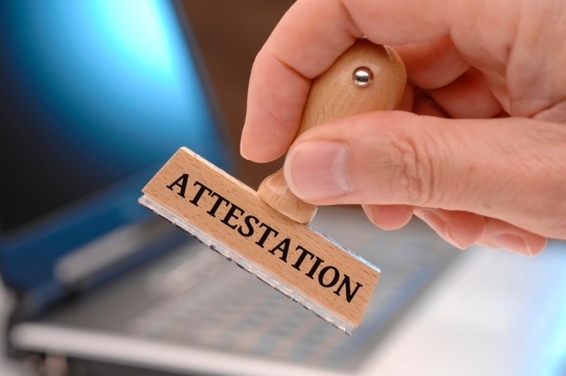In a globalized world, people often find themselves crossing borders for new employment opportunities. For many, this entails an extensive set of formalities, one of which is document attestation. Birth certificate attestation is a crucial process that may arise when moving abroad, especially if you need to secure a work permit in your destination country. This article provides a detailed look at what birth certificate attestation entails, why it’s necessary, and the step-by-step process involved.
What is Birth Certificate Attestation?
Birth certificate attestation is an official authentication process whereby a birth certificate is verified and legalized for international use. Typically, attestation involves multiple levels of certification from local, state, and national authorities, with the final approval granted by the embassy or consulate of the destination country. This ensures that the birth certificate is recognized as valid and authentic for purposes such as acquiring a work permit, applying for visas, or facilitating residency requirements abroad.
Why is Birth Certificate Attestation Required for Work Permits?
A birth certificate is a primary identity document that certifies a person’s legal birth date, name, and place of birth. Many countries require attested birth certificates to issue work permits as they use this document to verify a candidate’s identity, age, and nationality. This verification is necessary to uphold immigration regulations, prevent fraudulent documentation, and ensure an applicant meets all necessary legal criteria for employment eligibility.
Additionally, a verified birth certificate can simplify other formalities, such as setting up healthcare, opening a bank account, or enrolling dependents in school, which might also be part of the relocation process.
Key Scenarios Where Birth Certificate Attestation is Necessary
While birth certificate attestation for work permits is a common requirement, there are other circumstances where it might be necessary:
- Family Visa Applications – If you are relocating with family, attested birth certificates are often required for dependents.
- Marriage Visa Applications – In some countries, a birth certificate attestation is required to confirm age eligibility for marriage visa approvals.
- University Admissions – Birth certificates often require attestation for students seeking admission in certain educational programs abroad.
- Pension and Social Security – Some countries require birth certificates for individuals claiming social security or pension benefits, especially if they were born outside of that country.
Understanding the situations where an attested birth certificate is needed can help you avoid unnecessary delays in your work permit or immigration process.
Steps for Birth Certificate Attestation
Birth certificate attestation typically involves a multi-step process that includes verification from various government bodies in your home country and the destination country. Below is a step-by-step guide:
Step 1: Notarization
The first step usually involves having the birth certificate notarized by a certified notary public. This notary public’s role is to verify that the document is legitimate and that it matches the records on file.
Step 2: State Home Department Authentication
In many countries, after notarization, the document must be authenticated by the Home Department in the state where the certificate was issued. This step ensures that the document complies with state regulations and is verified as genuine.
Step 3: Ministry of External Affairs (MEA) Attestation
The MEA or equivalent foreign affairs department attests to the document after state-level verification. This department’s role is to authenticate the certificate at a national level, ensuring that the document meets international standards for attestation.
Step 4: Embassy or Consulate Attestation
The final step is attestation by the embassy or consulate of the destination country. This is usually the most critical step, as it is where the certificate is legalized for use abroad. Once the embassy or consulate verifies the document, it is considered valid in the destination country.
Apostille vs. Attestation: Understanding the Difference
When discussing document legalization, you might encounter the term “apostille” along with “attestation.” Although they seem similar, they are distinct processes, and the one you’ll need depends on the country you are moving to.
- Apostille: An apostille is a simplified authentication process for documents moving between countries that are part of the Hague Convention, an international treaty signed by over 100 nations. Documents with an apostille do not require further embassy attestation in the destination country, simplifying the process.
- Attestation: For countries that are not part of the Hague Convention, a birth certificate must go through the multi-step attestation process described above. This includes notary, home department, external affairs, and embassy attestation.
Birth Certificate Attestation Requirements by Country
Each country has unique requirements for document attestation. Here are some specific details about birth certificate attestation for work permits in a few popular destinations:
United Arab Emirates (UAE)
In the UAE, birth certificate attestation is often required for work permits, especially for applicants who plan to sponsor family members. The process includes notary verification, state attestation, MEA attestation, and final embassy attestation. Additional attestation by the UAE Ministry of Foreign Affairs might be needed once you arrive in the UAE.
United States of America (USA)
While the USA does not commonly require birth certificate attestation for work permits, it might be required for dependents or for long-term stays involving family. The document must be notarized, authenticated by the Secretary of State in the issuing state, and then attested by the Department of State and the U.S. embassy.
Canada
Canada’s process is straightforward. Typically, notarization, state attestation, and MEA attestation are required, followed by Canadian consular attestation. For those planning to settle permanently, document attestation simplifies processes such as healthcare registration and child education enrollment.
United Kingdom (UK)
The UK usually requires notarization and MEA attestation for birth certificates. UK consulates and embassies often have streamlined processes, and additional embassy verification might only be needed if the certificate is issued outside the UK.
Australia
In Australia, birth certificate attestation for work permits involves a similar process of notarization, state, and federal-level attestation. While Australia is part of the Hague Convention, specific cases may require embassy attestation, particularly for non-Hague signatory countries.
Common Challenges in Birth Certificate Attestation
Attesting a birth certificate for a work permit can be complex and time-consuming, especially without proper guidance. Here are some common challenges:
- Time Constraints – The process may take several weeks or months, depending on your country and the type of attestation required.
- Document Rejection – Documents may be rejected for various reasons, such as missing information, poor-quality scans, or incorrect formatting.
- Inconsistent Requirements – Some countries may frequently change their attestation requirements, leading to confusion and potential delays.
- Geographic and Bureaucratic Hurdles – For those in remote areas, visiting multiple offices or embassies for attestation can be challenging.
- Cost – Attestation fees vary by country and type, and the cumulative cost can be significant, especially for multiple family members.
Tips to Streamline the Birth Certificate Attestation Process
Navigating the attestation process can be simpler with these practical tips:
- Start Early – Begin the attestation process as soon as possible, ideally when you start applying for jobs or visas, to avoid last-minute delays.
- Consult a Professional – Legal and document attestation agencies can guide you through the process, helping with paperwork, requirements, and potential obstacles.
- Check Requirements Regularly – Some countries may have evolving attestation rules, so it’s important to check for updates on the official website of the embassy or consulate.
- Ensure Proper Document Format – Use high-quality photocopies or scanned copies where required, and confirm that all personal details are accurate and match other official records.
- Budget for the Process – Factor in the costs of attestation as part of your relocation expenses.
Final Thoughts on Birth Certificate Attestation
While the birth certificate attestation process might appear overwhelming, careful planning and a structured approach can help simplify it. A well-attested birth certificate not only paves the way for a successful work permit application but also serves as a verified proof of identity in your host country. By ensuring that your documents meet the necessary legal standards, you set yourself up for a smoother transition, making it easier to access opportunities and settle into your new home.









